JORGE DE SENA (1919-1978)
This post concerns a public invitation for a cerimony in memoriam of Jorge de Sena, one of the best Portuguese writers ever. You may find more biographical information about him on the beautiful text written in September 1979 by the University of California, published as a comment to this post.
A Fundação José Saramago convida-nos a todos para a sessão de homenagem a Jorge de Sena, que decorrerá no Teatro Nacional de São Carlos, no dia 10 de Julho de 2008, pelas 21h30 (entrada condicionada pela lotação da sala), com o Programa seguinte:
- Leitura de poemas por Jorge Vaz de Carvalho
- Recital de piano por António Rosado
- Leitura de depoimento de Mécia de Sena
- Intervenções de Eduardo Lourenço, Vítor Aguiar e Silva, Jorge Fazenda Lourenço, António Mega Ferreira e José Saramago
- Encerrará a sessão o Ministro da Cultura, José António Pinto Ribeiro





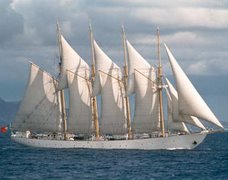

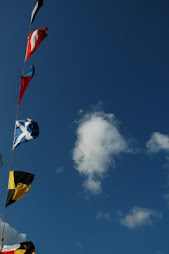






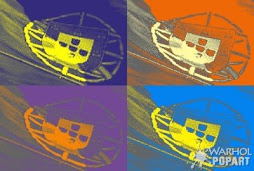
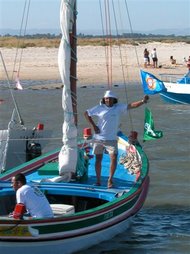





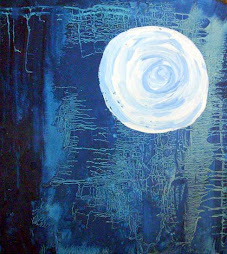




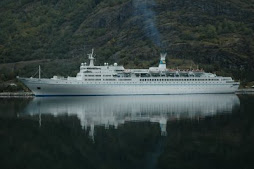





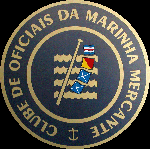





3 comments:
«Jorge de Sena, considered one of the most important figures in Portuguese literature, was born on November 2, 1919, in Lisbon, Portugal. He was the only child of August Raposo de Sena, an Azorean in the Merchant Marine, and Maria de Luz Grilo, from northern Portugal. Both families belonged to the upper-middle-class, with ties to the Portuguese aristocracy. His maternal grandmother lived with the family, and had a deep cultural influence over him. A great-aunt was a friend of Fernando Pessoa's mother, and he -- the great poet -- would sometimes be at home when Jorge would visit.
While a young man, he entered the Portuguese Naval Academy, and as a cadet traveled to Africa and Brazil, the start of his great odyssey to familiarize himself with all Portuguese lands.
Although he had the highest grades, he was dismissed after one year, and then inducted into the army, where he became an officer.
He completed his studies for his master's degree at the University of Oporto, where he majored in civil engineering, and graduated in 1944. Although for fifteen years he pursued his career as an engineer for the state, his consuming interest was literature, a field he had cultivated seriously both as a poet and a critic since his university days.
In 1959 he left Portugal and his career as an engineer and went with his family to Brazil where he became a professor of literary theory at the University of São Paulo, while he finished his doctorate in literature. After six years, he accepted an invitation to become a full professor at the University of Wisconsin, where he moved in 1965. He was a member of the faculty of the University of California, Santa Barbara, from 1970 until his death. He had been the chairman of the department of Spanish and Portuguese and also of the comparative literature program since 1975.
Jorge de Sena's literature production was truly prodigious. Incredibly varied and rich, it includes biographies, criticisms, essays, histories, translations, short stories, theater, novels, and poetry; the number of volumes published exceeds one hundred. Besides being the leading authority on Camões and Fernando Pessoa, Sena's literary production comprises four volumes of short stories, seven plays, and more than twelve volumes of poetry -- works which distinguished him as the foremost living Portuguese poet and the third of all time, a part of the great poetic triad: Luis de Camões, Fernando Pessoa, and Jorge de Sena. He received many honors and prizes, including that of being elected a correspondent member of the Lisbon Academy of Science, Commander of the Order of Prince Henry the Navigator, recipient of the Etna Taormina Inernational Poetry Prize for 1977, Knight of the Order of St. James, and a nominee for the Nobel Prize in Literature in 1978.
Although the academic side (the external side) of Jorge de Sena is very important, what attracted us, what touched us all and made us love him, was his great spirit. No one had so many friends, and the reason is simple: no one knew how to be a friend better than he. He liked people and literally lived for others, sacrificing himself and his family in the process. His monumental correspondence is evidence of the attention that he gave to all, from the high and powerful to the most humble. His home was not just a home, it was a hotel, and always a train station, with people from all parts of the world coming and going, asking for information or advice, comfort and support. His door was always open. Lesser men are often too busy to be interested in others. But Jorge de Sena always had time, especially for the young. With all the demands on his time, it is genuinely incredible that this man could write, or accomplish anything at all. But he did; he produced and lived enough for three people. He knew how to live fully. He was honest. He knew how to love. He was meek -- the only ones who didn't find him humble were those who were not acquainted with his work or its value. He knew how to enjoy himself. He loved life. We felt his dynamism, his vitality, that which made his life a growing and an expanding and never a having and resting. Close to him we felt a tremendous joie de vivre.
Jorge de Sena is survived by a loving wife, Mécia de Freitas Lopes, and nine children, Isabel, Pedro, Joana, Manuela, Mariana, Paulo, Vasco, Zezinha, and Nuno. Family, students, colleagues, and friends will always remember this great, gentle man, who, dead, took with him -- in his words -- a desire and sense of life “as green as age-old hope eternal,” and left in our hearts love and “não sabemos o que de paz tranquila”…»
«In Memoriam», by the University of California, Academic Senate, September 1979.
Aí está um escritor de luxo, mesmo vivendo nos USA foi de Alma e Coração luso até à morte. E para mais escrevia bem, não era como certos senis empacotados pelos castelhanos para vender papel tingido por letras.
De luxo mesmo!!! «Vocês» conseguem vir? É já na Quinta-feira...
Post a Comment